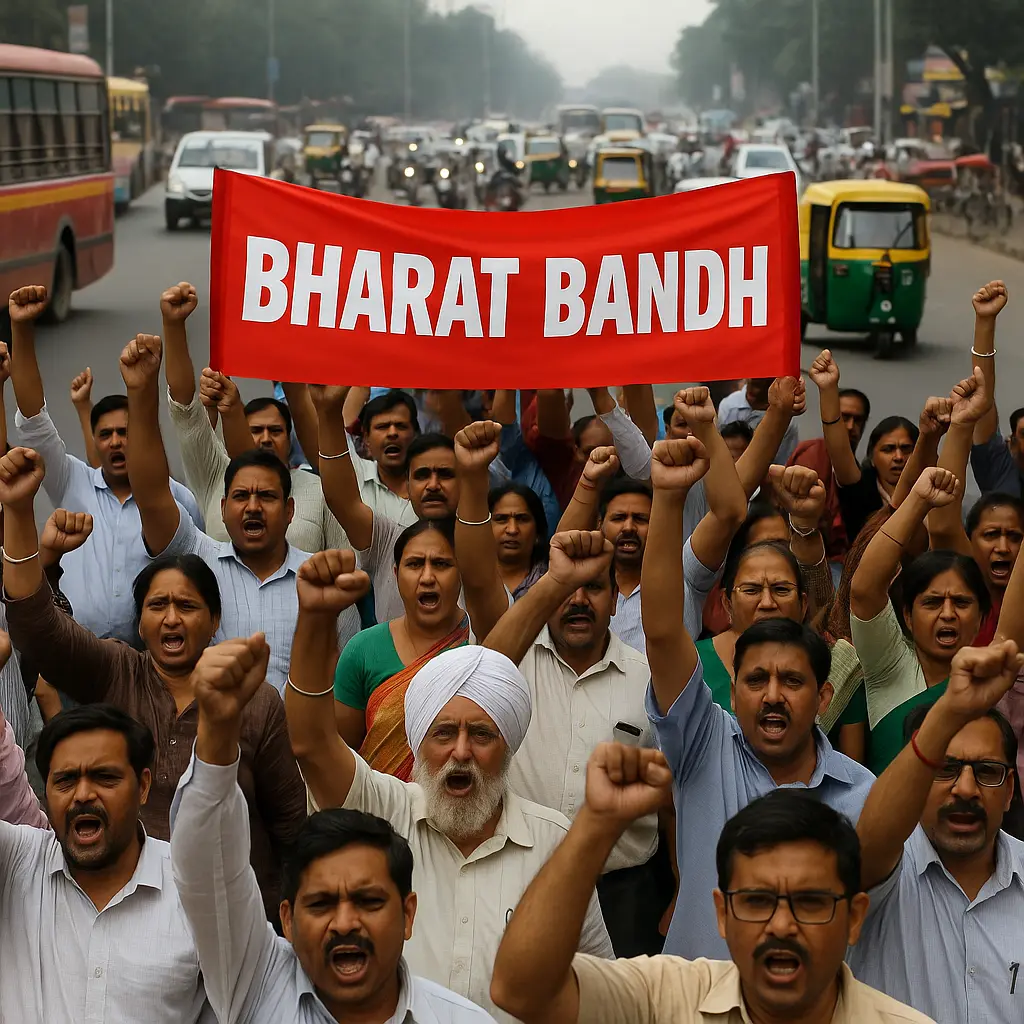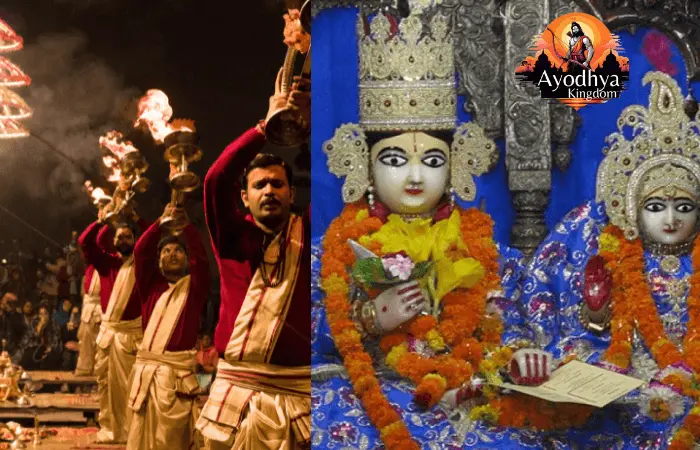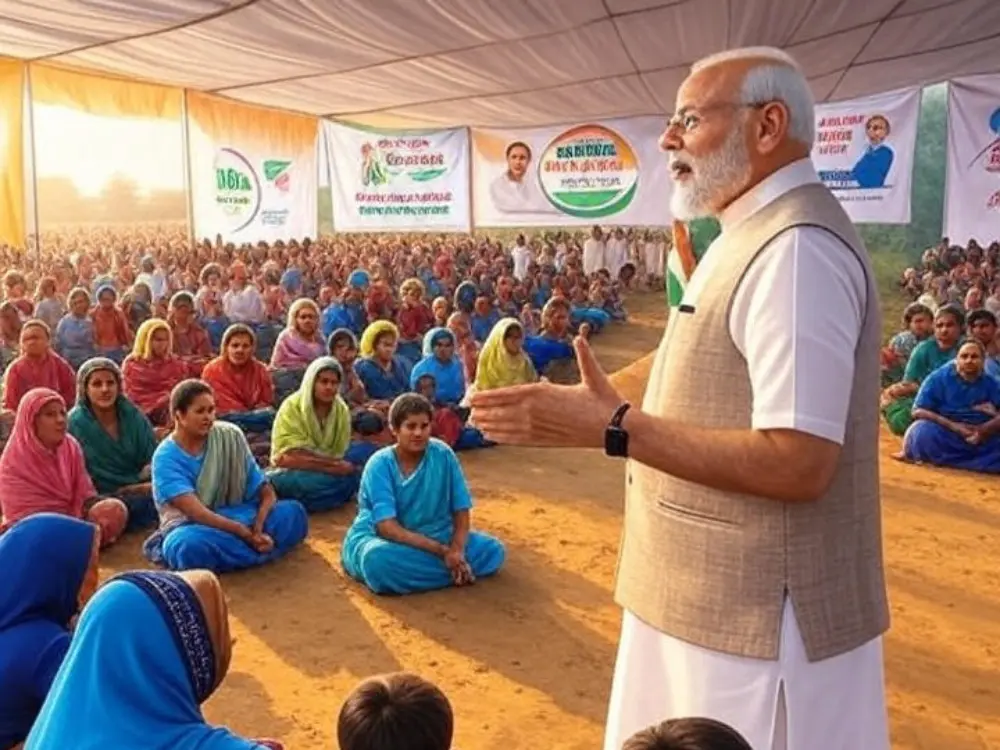On July 9, 2025, 25 crore workers & farmers strike nationwide. Learn why, what’s shut, zones to avoid, and hidden angles no one’s covered.
India is bracing for one of its biggest national shutdowns in recent history. On Wednesday, July 9, 2025, over 25 crore workers from across sectors — including banking, transport, agriculture, and public services — will join a Bharat Bandh (nationwide strike) called by 10 major central trade unions. The scale of the protest is so large that it’s expected to partially or completely paralyze day-to-day life in several states.
This isn’t just another routine protest. It’s a unified voice of workers, farmers, students, and daily wage earners demanding attention to deep-rooted issues that affect the livelihoods of millions.
Table of Contents
ToggleWho Is Behind the Bharat Bandh and Why?
The call for the strike comes from top labor unions like CITU, AITUC, INTUC, HMS, AIUTUC, and several independent federations. The Samyukta Kisan Morcha, which led the historic farmer protests in 2020-21, has also extended its support.
Their major concerns include:
- Anti-worker labor codes: The four new labor laws passed by the Centre are being seen as a threat to collective bargaining, job security, and social security.
- Privatization of public assets: Unions accuse the government of selling off key PSUs and public infrastructure to private corporations.
- No minimum wage enforcement: Workers complain that despite rising inflation, the minimum wage is not being implemented uniformly.
- Contractualization of jobs: Permanent jobs are being replaced by temporary, contract-based employment with fewer benefits.
- Unmet charter of demands: A 17-point demand list submitted last year was never acted upon by the government.
These deep grievances are no longer limited to trade circles — they’ve reached the streets.
Services That May Shut Down or Face Delays
Expect major disruptions in the following areas across India on July 9:
| Service Sector | Expected Status |
|---|---|
| Banks (PSU & Co-op) | Major disruptions; banking hours reduced, some branches may shut |
| Public Transport | Buses, autos, and metro services affected in major cities like Delhi, Mumbai, Kolkata |
| Railways | Trains may be delayed; support unions from the sector joining protests |
| Power Sector | Risk of power outages in Uttar Pradesh, Punjab, Jharkhand where state unions support the bandh |
| Schools & Colleges | Some private schools declaring a precautionary holiday |
| Postal Services | Possible delay or complete closure in urban hubs |
| Government Offices | Attendance may drop sharply; union members on strike |
| Mandis & Rural Markets | Low turnout of farmers, potential disruption in supply chains |
What Makes This Bandh Different: Untold Angles the Media Isn’t Highlighting
While most reports focus on which services will be hit, there are three key underreported angles that deserve attention:
1. Rural Ripples May Be Bigger Than Urban Disruptions
Farmers’ unions from Punjab, Haryana, Uttar Pradesh, and Madhya Pradesh are joining in solidarity. That means rural grain procurement, fertilizer supply, and mandi activities could take a massive hit — potentially affecting urban food prices over the next few weeks.
2. Assam’s Dual Strike Threatens Northeast’s Movement
In Assam, July 9 coincides with a 24-hour regional chakka bandh (transport strike) by local transporters. This rare convergence of national and regional shutdowns could freeze the northeast’s transportation links completely — something not widely discussed yet.
3. Power Workers: The Silent Pressure Point
The electricity sector unions, especially in UP and Bihar, are protesting the privatization of DISCOMs. Their participation adds a layer of risk that could result in rolling blackouts, especially in smaller cities and towns.
Voices from the Ground
“They want us to work more for less pay while our jobs get outsourced. This bandh is our only option now,” said Rakesh Kumar, a postal worker from Bihar.
“We were promised fair MSP and farm loan waivers — nothing happened. We’re joining to wake up the government,” said Gurmeet Singh, a farmer from Ludhiana.












